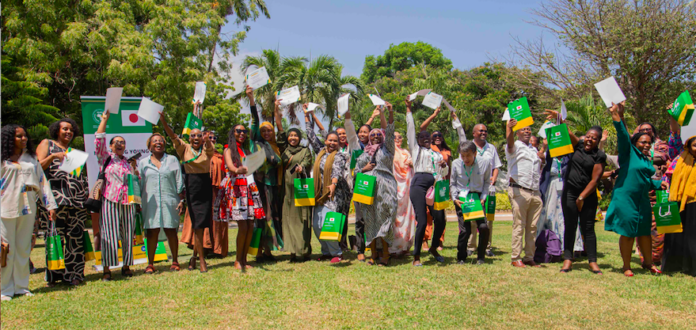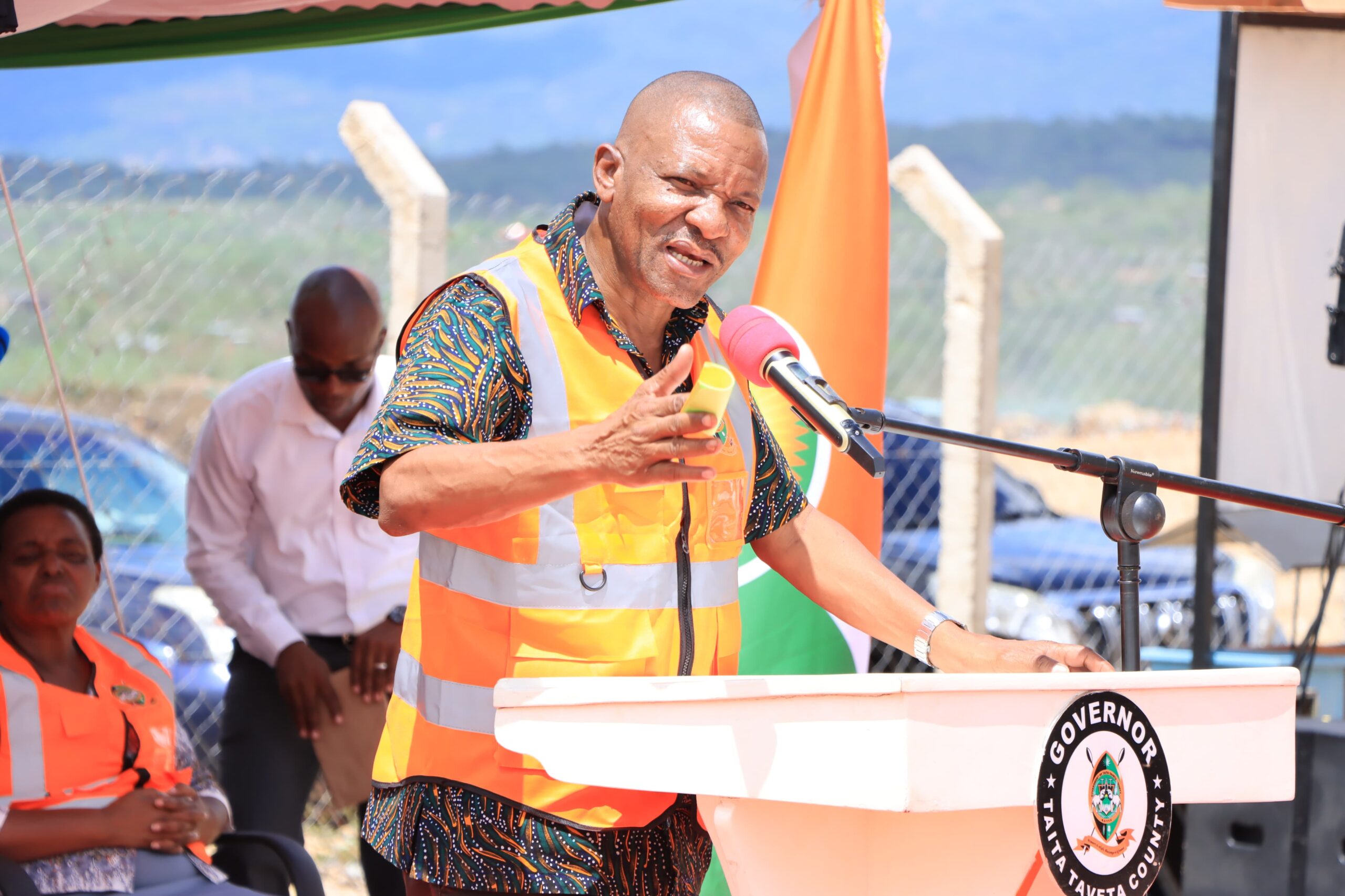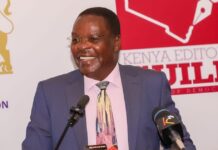By Nyambura Kamau
Mombasa, Kenya: In the vibrant coastal city of Mombasa, where the Indian Ocean gently laps against the shores, over 30 young women leaders from across the Horn of Africa gathered for a transformative event aimed at shaping the future of leadership and peace in the region.
United by a shared purpose, these women refined their leadership skills and enhanced their capacity to mentor the next generation of young female leaders.
Over the course of three intense days, the atmosphere was charged with energy and determination as these trailblazing women, from diverse backgrounds, engaged in candid, thought-provoking discussions.
The event focused on addressing the unique challenges faced by women in leadership roles within conflict-affected regions. Topics ranged from the role of women in peacebuilding and conflict resolution to the difficulties of navigating rigid cultural norms, tackling climate change, and overcoming financial barriers to leadership.
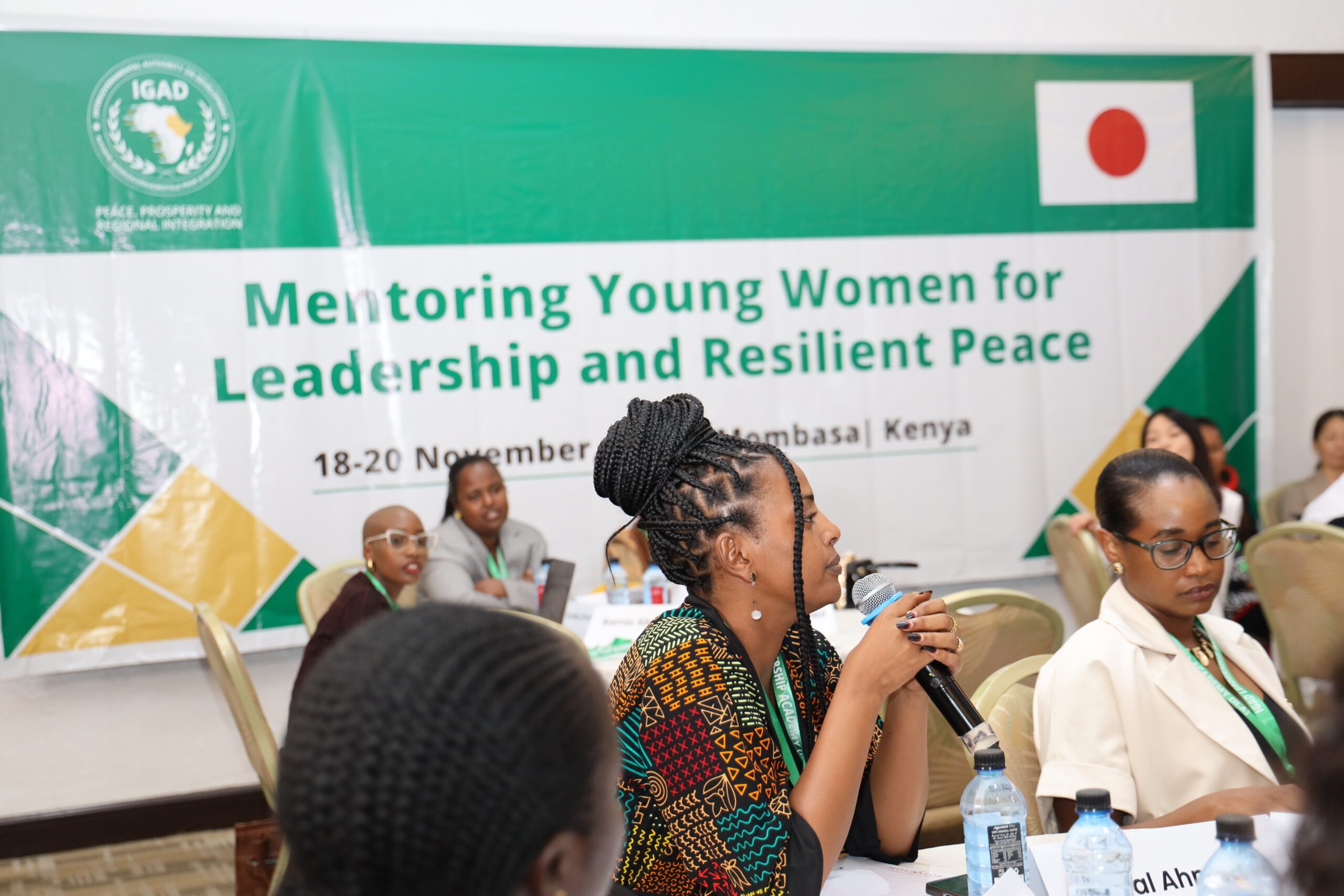
At the heart of these conversations were personal stories of triumph and setbacks. Despite the significant obstacles they faced, the women spoke with unwavering conviction about the need to create spaces where young women could step up and lead. They envisioned a future based on resilient peace and sustainable security, where women’s leadership was not only recognised but celebrated as a catalyst for positive change.
One central theme discussed was the persistent cultural norms that often undermine women’s potential and limit their opportunities. Nasro Abas Mohamed, an entrepreneur and founder of the Woman Solidarity Group in Djibouti, reflected on how cultural expectations have historically relegated women to domestic roles.
“We were taught to accept being led by men,” Nasro explained. “This has to change, and it must start with training and the adoption of technology.” For Nasro and many others, the path forward lies in empowering women with the skills and tools they need to challenge these norms and claim their rightful place in society.
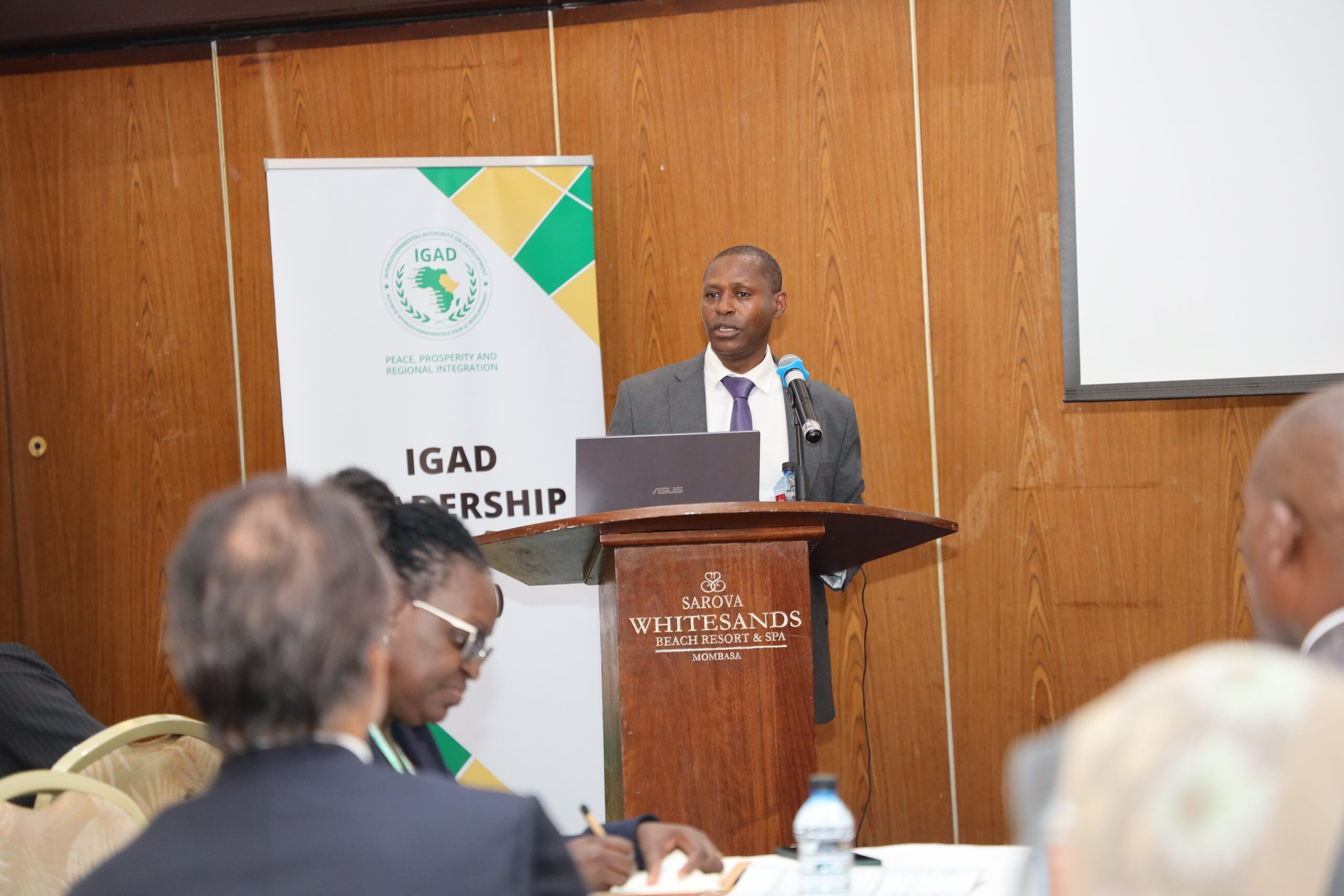
Beryl Karimi, a prominent writer, feminist, and communications practitioner in Kenya, took the discussion into the realm of politics, emphasising the importance of women’s participation in political parties and decision-making processes. She pointed out that political power is predominantly held by men, and the few women in politics are often given only token positions.
“Women need equal power, beyond the token positions we are offered now,” Beryl asserted. She also called for women to engage more deeply with political content, arguing that many women’s interests are often reduced to lifestyle and beauty topics, which, while lucrative for advertisers, fail to address the critical political and social issues affecting women’s lives.
Another significant challenge highlighted during the event was the lack of unity among women leaders. Nagawa Rebecca, a gender officer from Uganda, discussed how some women in politics are subjected to undue pressure from their spouses to disclose their financial status, often facing violence if they refuse.
“Instead of supporting each other, some women sabotage one another,” Rebecca lamented, stressing the need for solidarity and collaboration among women in leadership roles. She urged the gathering to foster a culture of mutual support and empowerment to strengthen their collective impact.
Amina Ali Mohamed, a content creator and actress from Djibouti, spoke passionately about the need for positive leadership within the feminist movement and the importance of increasing women’s representation in leadership roles across all sectors. She encouraged her peers to harness the power of social media as a tool for amplifying their voices and advocating for change.
“We have platforms at our fingertips, and we must use them to push for women’s rights and leadership,” she said.
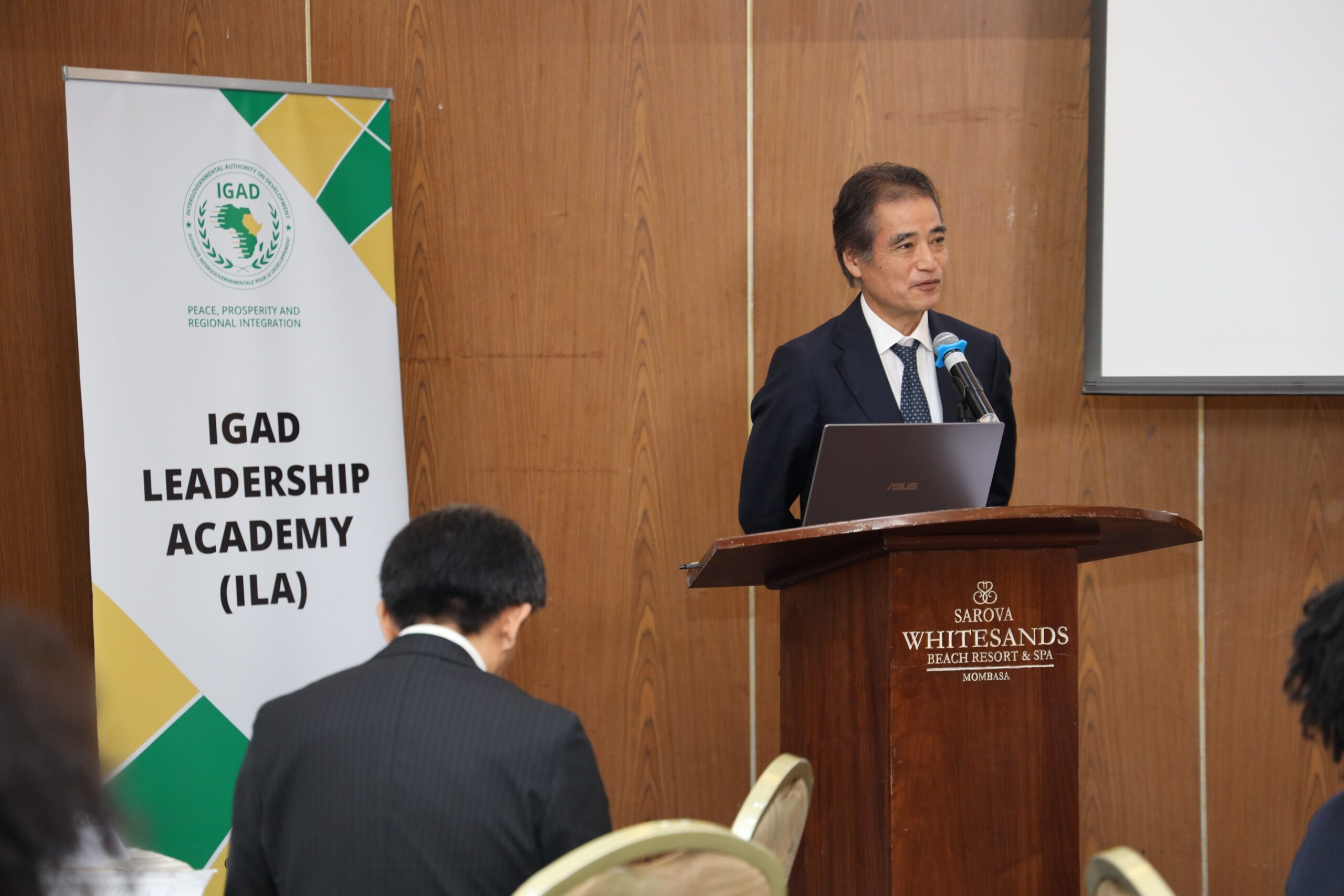
Alaa Mudathir, Director General of International Health at Sudan’s Ministry of Health, shared her experiences of leading in Sudan before the outbreak of war, where women held a prominent role in leadership—constituting 60% of leadership positions. She emphasised the critical importance of supporting women in leadership roles, especially in peacebuilding, where their voices and perspectives are invaluable.
However, Alaa also spoke candidly about the added burdens women face in conflict, including gender-based violence, family pressures, and competing responsibilities, which can hinder their ability to lead effectively.
Josphat Onyari, reading a statement on behalf of IGAD Executive Secretary Workneh Gebeyehu, echoed the sentiments of the other speakers, noting that empowering women is integral to global progress.
“When you train a woman, you train the whole world,” he remarked, underscoring the transformative power of women’s education and leadership. He also called for women’s inclusion in peace negotiations, highlighting their critical role in reshaping regional narratives and fostering lasting peace.
Ambassador Shimizu Shinsuke, Japan’s Special Envoy for the Horn of Africa, affirmed Japan’s commitment to supporting peace and security initiatives in the region, emphasising the important role women play in peacebuilding. “Women are not just victims of conflict; they are active agents of peace,” he said.
As the event came to a close and the women returned to their respective countries, their shared commitment to mentoring and empowering the next generation of women leaders remained steadfast. IGAD Leadership Academy Director Dr Simon Nyambura offered closing remarks, encouraging the women to “offer leadership where you are.” It was a call to action—one that carried with it the promise of change, slow but unstoppable, driven by the courage, resilience, and vision of these women leaders.

